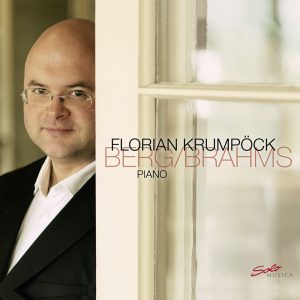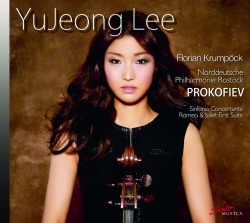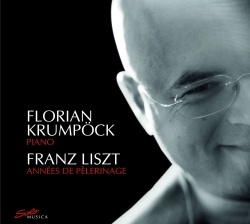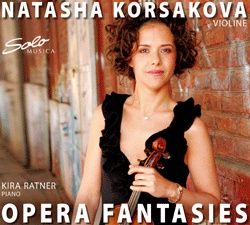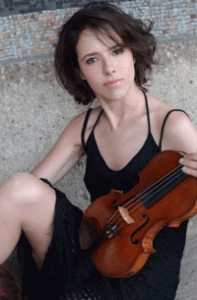 Natasha Korsakova, russisch-griechischer Abstammung, ist eine der gefragtesten Geigerinnen Ihrer Generation. Die Süddeutsche Zeitung beschreibt ihr Violinspiel als „sündhaft schönes Hörerlebnis“, die FAZ spricht von einem „Ausnahme-Talent“. Die attraktive, sechssprachige, junge Geigerin hat den Übergang vom gefeierten Wunderkind zur erwachsenen Künstlerin gemeistert und ist inzwischen begehrter Gast bei nationalen und internationalen Orchestern, Musikfestivals und Konzertveranstaltern. Natasha Korsakova steht für „ausgefeilte Technik, ausgeprägtes Stilgefühl und musikalisches Einfühlungsvermögen“ (FAZ) sowie für ein Charisma, das seinesgleichen sucht.
Natasha Korsakova, russisch-griechischer Abstammung, ist eine der gefragtesten Geigerinnen Ihrer Generation. Die Süddeutsche Zeitung beschreibt ihr Violinspiel als „sündhaft schönes Hörerlebnis“, die FAZ spricht von einem „Ausnahme-Talent“. Die attraktive, sechssprachige, junge Geigerin hat den Übergang vom gefeierten Wunderkind zur erwachsenen Künstlerin gemeistert und ist inzwischen begehrter Gast bei nationalen und internationalen Orchestern, Musikfestivals und Konzertveranstaltern. Natasha Korsakova steht für „ausgefeilte Technik, ausgeprägtes Stilgefühl und musikalisches Einfühlungsvermögen“ (FAZ) sowie für ein Charisma, das seinesgleichen sucht.
Nach einem Konzert mit Ihrem kongenialen Klavier-Partner José Gallardo im März 2005 in New York schreibt Anthony Aibel in der New York Concert Review: „This fantastic pair of performers needs to come to New York again soon. Carnegie Hall, are you listening?” Natasha Korsakova wurde in Moskau in eine Musikerfamilie hineingeboren und begann im Alter von 5 Jahren mit dem Violinspiel. Sie ist eine Ururgroßnichte des Komponisten Nikolai Rimsky-Korsakov. Ihr erster Lehrer war ihr Großvater, Boris Korsakov. Nach ihm übernahm ihr Vater, der bekannte russische Geigenvirtuose Andrej Korsakov, ihre weitere Ausbildung. Ihre Mutter ist die Pianistin Yolanta Miroshnikova-Caprarica. Nach dem frühen Tod des Vaters studierte Natasha Korsakova zunächst bei Ulf Klausenitzer in Nürnberg, später bei Saschko Gawriloff in Köln.
Natasha Korsakova gastiert in den bedeutendsten internationalen Konzertsälen, u.a. in der Großen Halle des Moskauer Konservatoriums, der Berliner Philharmonie, dem Leipziger Gewandhaus, der Tokio Santory Hall, der Kölner Philharmonie, dem Concertgebouw Amsterdam, der Wigmore Hall London, der Accademia di Santa Cecilia in Rom und der Alten Oper in Frankfurt. Sie ist Gast bei führenden Festivals, wie den Ludwigsburger Festspielen, dem Liechfield-Festival, Mecklenburg-Vorpommern-, Schleswig-Holstein- und – auf Einladung von Gidon Kremer – dem Lockenhaus-Festival. Auf Einladung von Irina Schostakowitsch trat Natasha Korsakova 2000 in Paris im Rahmen eines Festkonzertes zu Ehren Dmitri Schostakowitschs auf.
Zu den namhaften Dirigenten, mit denen Natasha Korsakova bisher zusammenarbeitet, gehören u.a. Mstislav Rostropovich, Alun Francis, Marc Soustrot, Philippe Auguin, Georg Fritzsch und Vassilij Sinaisky. Sie spielt u.a. mit dem Philharmonischen Orchester des Niederländischen Rundfunks, der Klassischen Philharmonie Bonn, dem Bayerischen Kammerorchester, dem Russischen Staats-orchester, den Moskauer Philharmonikern, dem Orchestra da Camera di Mantova, dem European Union Chamber Orchestra, dem Orquestra Sinfonica del Estad de Mexico und dem Orquesta Sinfónica de Chile.
Als begeisterte Kammermusikerin spielt Natasha Korsakova u.a mit Saschko Gawriloff, Salvatore Accardo, José Gallardo, Kira Rattner, Norman Shetler, Ira Witoschynskyi und Francoise Groben. 1998 wurde sie „Künstlerin des Jahres“ in Chile und gibt u.a. an der Universität für Musik in Santiago Meisterkurse. Im Mai 2007 ist Natasha Korsakova erneut zu einem Recital nach Wien eingeladen, um im Kunst-historischen Museum auf der Guarneri del Gesú “Ex-Menuhin“ zu spielen. Natasha Korsakova ist seit einigen Jahren auch schriftstellerisch tätig. Ihre erste Veröffentlichung, „Bergonzis Mysterium“, eine Kurzgeschichte, erschien 2003/2004 bei Edition Aramo in „Top 22, the only way is up“, herausgegeben vom Wolfgang Kühn. Derzeit schreibt Natasha Korsakova an einem Kriminalroman. Natasha Korsakova spielt auf einer Violine von Vincenzo Panormo (um 1770). Diese Geige ist eine Leihgabe der Sinfonima Stiftung der Mannheimer Versicherung. Natasha Korsakova lebt in Deutschland. Natasha Korsakova ist seit über einem Jahr Testimonial von Laura Biagiotti und trägt bei ihren Auftritten ausschließlich Outfits der Laura Biagiotti Prêt-à-Porter Kollektionen. (www.natashakorsakova.com)
Natasha persönlich
Die Oper faszinierte mich bereits seit dem ersten Besuch in Moskauer Bolschoi Theater, wo ich im Alter von 8 Jahren Tschaikowskys‘ „Eugen Onegin“ erlebte. Es war für mich deswegen eine große Freude, als die Plattenfirma sich an meinem Vorschlag interessiert zeigte, Opern-Bearbeitungen für Violine und Klavier aufzunehmen. Die Programm-Wahl dieser CD war nicht einfach. Zahlreiche schöne Bearbeitungen, die man hätte aufnehmen können, hätten problemlos Stunden ausgefüllt – doch leider hat eine CD nicht mehr als 80 Minuten!
Meine besondere Liebe zur Musik von George Gershwin entwickelte sich seit früher Kindheit, während ich immer wieder den Proben meiner Eltern zuhörte. Die Mischung aus klassischer Lyrik und Dramatik, der Schwung von Varieté-Songs und mitreißenden Jazz-Rhythmen hat Gershwin zu einem einzigartigen Komponisten gemacht, dessen einzige Oper “Porgy and Bess” zu den meistgespielten im 20. Jahrhundert gehörte. Zum Vergleich habe ich mit meiner Klavierpartnerin Kira Ratner zwei Bearbeitungen von “Porgy and Bess” aufgenommen: die eine stammt von Jascha Heifetz, der ein guter Freund Gershwins war und sechs berühmte Stücke einzeln und in Zweier-Gruppen für Violine und Klavier bearbeitete, die viele Geiger ins Herz geschlossen haben. Aber auch die „Fantasia“ des russischen Komponisten und Geigenvirtuosen Igor Frolov begeistert mich immer wieder aufs Neue, vor allem wegen der Jazz- und Blues-Elemente sowie dem ungestümen Temperament, mit dem sie komponiert wurde. Ohne italienische Komponisten hätte diese CD kaum entstehen können. Bei der Aufnahme von Castelnuovo-Tedescos‘ Konzert-Paraphrase über Rossinis „Barbier von Sevilla“ ließ ich mich von der außerordentlichen Einspielung meines Vaters Andrei Korsakov (1946-1991) aus den 80er Jahren inspirieren, und die beiden Verdi-Bearbeitungen „La Traviata“ (Bazzini) und „Ernani“ (Vieuxtemps) faszinierten als Raritäten aus dem Feder zweier grosser Geigenvirtuosen des 19. Jahrhunderts. Mein herzlicher Dank geht an Dr. Joachim Draheim für die Entdeckung der wunderschönen Bearbeitung von Offenbachs „Hoffmanns Erzählungen“ von Franz Drdla, sowie an Christoph Mauruschat, der für uns mit viel Mühe die Noten von “Ernani” und “Traviata” gesucht und gefunden hat!
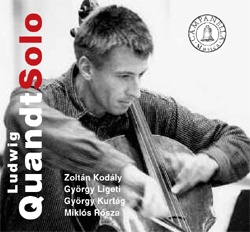
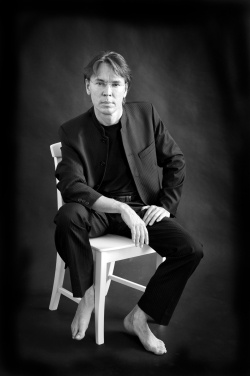 Pianist Stephan Matthias Lademann, born in Meißen (Germany), discovered his passion for chamber music and vocal accompaniment during his studies at the Dresden University of Music. He focused on this genre after his escape from the former GDR. Since 1997, Vienna has been Lademann‘s musical home. His close collaboration with Robert Holl in Vienna as given him important artistic impulses. He has also been the artistic partner of Siegfried Jerusalem and has accompanied many other renowned singers such as Diana Damrau, Edita Gruberova, Paul Armin Edelmann, Mathias Hausmann, Sibylla Rubens, Chen Reiss, Günther Groissböck, Daniela Fally, Marlis Petersen and Robert Dean Smith. Together with these artists, Lademann has performed at several renowned international music festivals and important concert venues in Europe and in the Americas.
Pianist Stephan Matthias Lademann, born in Meißen (Germany), discovered his passion for chamber music and vocal accompaniment during his studies at the Dresden University of Music. He focused on this genre after his escape from the former GDR. Since 1997, Vienna has been Lademann‘s musical home. His close collaboration with Robert Holl in Vienna as given him important artistic impulses. He has also been the artistic partner of Siegfried Jerusalem and has accompanied many other renowned singers such as Diana Damrau, Edita Gruberova, Paul Armin Edelmann, Mathias Hausmann, Sibylla Rubens, Chen Reiss, Günther Groissböck, Daniela Fally, Marlis Petersen and Robert Dean Smith. Together with these artists, Lademann has performed at several renowned international music festivals and important concert venues in Europe and in the Americas.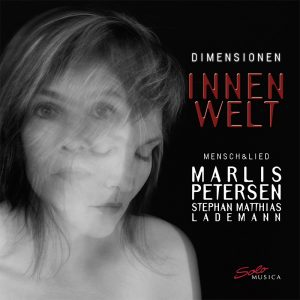
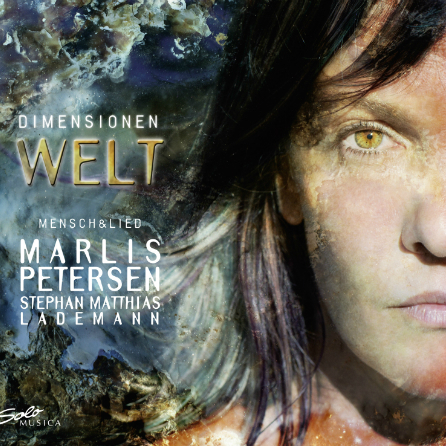
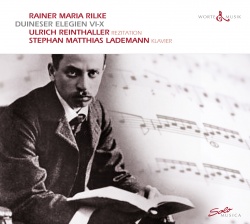
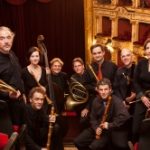 The wind ensemble ‘La Scintilla dei Fiati’ is composed of members of Orchestra La Scintilla at Zurich Opera. Having devoted themselves for many years to performing the substantial repertoire for this instrumentation on modern instruments, their desire grew stronger to play these works on period instruments, and thereby to discover and to experience completely new aspects of the music.
The wind ensemble ‘La Scintilla dei Fiati’ is composed of members of Orchestra La Scintilla at Zurich Opera. Having devoted themselves for many years to performing the substantial repertoire for this instrumentation on modern instruments, their desire grew stronger to play these works on period instruments, and thereby to discover and to experience completely new aspects of the music.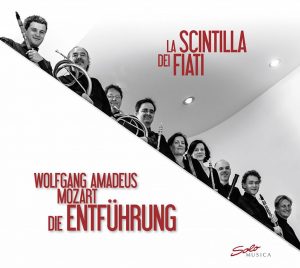
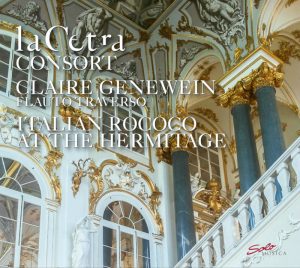
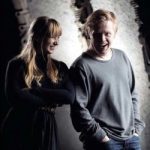 Pekka Kuusisto (born 7 October 1976 in Espoo) is a Finnish musician.
Pekka Kuusisto (born 7 October 1976 in Espoo) is a Finnish musician.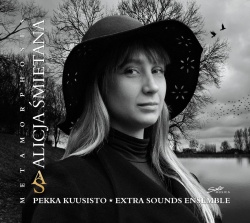
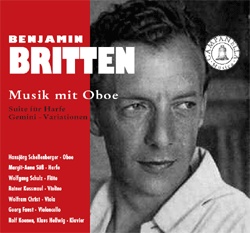
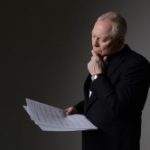 Yury Kunets (*1957) ist ein russischer Komponist, Musiker und Produzent.
Yury Kunets (*1957) ist ein russischer Komponist, Musiker und Produzent.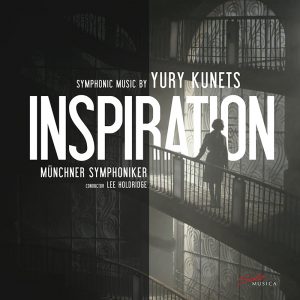
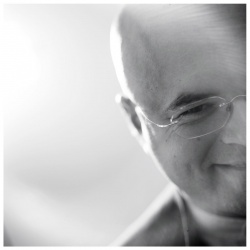 Internationally celebrated as both a soloist and conductor, Florian Krumpöck has more than proven his outstanding capability on the international concert scene. Appointed as one of the youngest music directors in German history in 2011, Krumpöck characteristically masters enormous amounts of opera and concert literature as well as piano repertoire, and particularly enthrals his audiences with his double function as a soloist and conductor.
Internationally celebrated as both a soloist and conductor, Florian Krumpöck has more than proven his outstanding capability on the international concert scene. Appointed as one of the youngest music directors in German history in 2011, Krumpöck characteristically masters enormous amounts of opera and concert literature as well as piano repertoire, and particularly enthrals his audiences with his double function as a soloist and conductor.